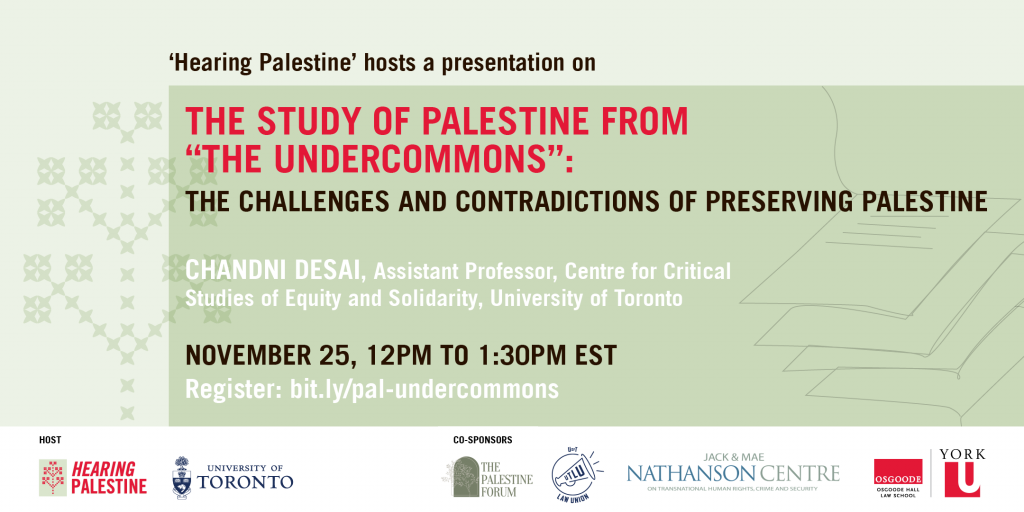Title: The Study of Palestine from “The Undercommons”: Anti-colonial Epistemologies, Method, and Praxis
Speaker: Chandni Desi, Assistant Professor at the Centre for Critical Studies of Equity and Solidarity at the University of Toronto
Date: November 25, 2021
Time: 12:00pm to 1:30pm EST
REGISTER HERE

Description:
Dr. Desai joins us for a talk that focuses on the challenges and contradictions of preserving Palestine, from occupied Palestine to campuses in Canada.
The talk will examine the systematic attempts at dislocating, displacing, and erasing Palestinian archives, by the Israeli state and other actors that have contributed to curricular erasures. The talk will also speak to the epistemic challenges of studying Palestine from “the undercommons”, a space of epistemic resistance to settler colonial erasure.
Dr. Chandni Desai
Chandni Desai is an Assistant Professor in the Critical Studies of Equity and Solidarity at UofT. Her areas of interest and expertise include comparative settler colonialism, capitalist imperialism, Middle East politics, state violence, cultural resistance, political economy, anti-racism, feminism, youth activism, decolonization and abolition. Dr. Desai is working on her first book Revolutionary Circuits of Liberation: The Radical Tradition of Palestinian Resistance Culture and Internationalism. In it she excavates the history of the radical tradition of Palestinian resistance culture, specifically the cultural institutions, archives and radical arts practices established by Palestinian revolutionaries. She maps the circulation of resistance culture across geographies in the 20th and 21st century, the legacy of anti-colonial and anti-imperialist cultural production, and praxis against settler colonial dispossession, imperialism, warfare and genocide, past and present.
Desai is also the host of the Liberation Pedagogy Podcast, a co-investigator on a SSHRC insight development grant, a collaborator on the SSHRC funded Youth, War, Migration Project and has co-taught an ELL course on settler colonialism, displacement and settlement to refugees from the Middle East and Africa. I know I speak for many students when I say that we are very fortunate to have her as an academic, leader, and instructor at the University of Toronto.
Co-Sponsors